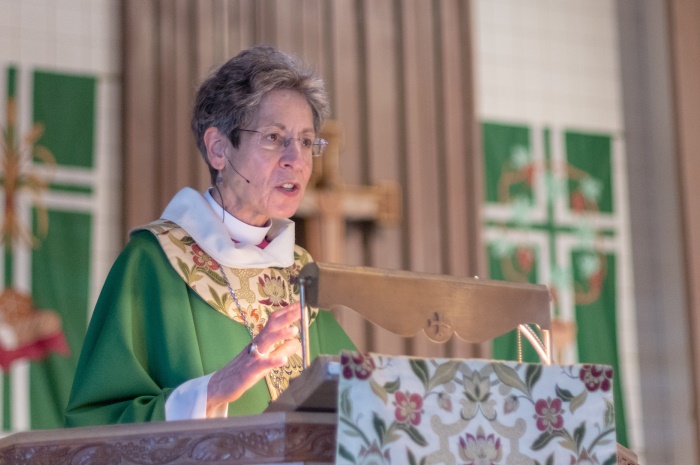Improving Our Conversational Culture

We live in a time of heightened disagreement and increasingly disagreeable modes of communication. Rarely have human societies managed effective and transparent conversations that are also kind. At times we are too concerned about how our words will be received to be sufficiently truthful; at other times we spew venom or circulate gossip without regard for the injury caused.
Jesus modeled clear and nonviolent ways of speaking truth, and reminded his followers to “let your yes be yes and your no be no” (Matthew 5:37).
We can improve our conversational culture, and congregations provide an excellent laboratory or schoolhouse. What we learn there can go with us into a world that deeply needs help in raising the level of communication. We love our neighbors with our words as well as with our deeds, as we promise in baptism.
Let me commend the possibilities of educational series or workshops in your congregation, particularly as we move into this election cycle. The Episcopal Public Policy Network has put together a curriculum on civil discourse, which is a great place to start.
Yet our discourse and conversation is meant to be something beyond civil. Our words can image our source in the Word of God. Our language and conversation can be holy and healing. Resources leading in that direction include the Center for Nonviolent Communication (note their training resources).
The Lombard Mennonite Peace Center teaches these skills, particularly in the context of peace-making, reconciliation, and mediation. This diocese has offered two of their workshops in the last year, and would do so again, given sufficient interest.
Compassionate communication is another framework modeled on loving the neighbor as yourself.
If your congregation has conflict (what human community doesn’t?) and wants to engage it constructively, if your congregation seeks a higher and more effective level of excellence, if you want to grow your spiritual life and deepen relationships with God and neighbor, the care and feeding of communication is a life-giving exercise for those on the Way of Love.